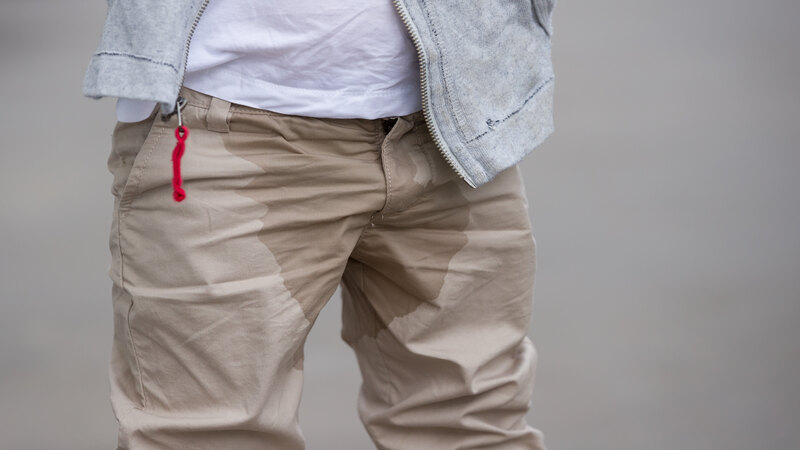
All children have wetting mischances at some point of time. Urologic issues in children are of a worry to the parents especially when their trained child still wets the bed and is subjected to daytime accidents frequently. If these accidents happen in spite of trying hard to help a child to make it to the toilet, and realizing other children of same age have attained bladder control, parents get anxious. No doubt this delayed bladder control hinders with the toilet training of the child.
Most of the time these worries are in vain as the age at which kid’s brain picks up control over their bladder is different for different kids. Though most, yet not all, kids will pick up this control by 4 years old. Even around the age of 4 years, if your child does not attain bladder control at all, then the matter needs some concern. Left untreated, and if it continues far beyond the toilet training age, this can lead to behavioral, psychological, or even developmental issues of the child.
How Does A Child Attain His Bladder Control?
The bladder resembles an inflatable inside the body that tops off with pee. Envision yourself holding a filled inflatable. The fingers on one hand hold the neck of the inflatable close. These fingers are acting like a sphincter. The other hand lays close by the inflatable simply like the bladder muscles (called the detrusor muscles). To exhaust the inflatable in an ideal way you unwind the fingers holding the neck of the inflatable close and in the meantime press down with the other hand. To unwind one hand and crush down with the other hand takes some coordination. This is exactly what the sphincter and bladder ought to do when your child urinates-the sphincter unwinds in the meantime the bladder muscle contracts.
Infants do not have this control at all. The reflex in the spinal cord makes the sphincter muscle relax. As the child gets older, the bladder stretches effortlessly as it loads with pee. It doesn’t contract or increment in weight as it fills to a certain level. He or she will learn to block reflexes from the spinal cord through the signals from the brain. This sort of mind control of the bladder is the way kids ought to end up potty prepared. Any problem related to the filling of the bladder or emptying the bladder can lead to enuresis in the children. (Also adults).
What Is Enuresis?
Enuresis is the term that refers to the involuntary urination in kids (otherwise healthy, who are old enough to have bladder control), due to the inability to control their bladder, repeatedly during day or night or both.
Children ought not to be named enuretic unless consistent (more than twice every week) wetting holds on past the age of five years.
One curious fact is that the boys are found more likely to have enuresis than girls.
How Many Types Of Enuresis Are There?
Depending on when the wetting occurs enuresis can be either diurnal enuresis or nocturnal enuresis.
- Diurnal enuresis: Day time wetting accidents of the child who have passed the toilet training age is called diurnal enuresis.
- Nocturnal enuresis: The involuntary urination that happens largely at night when the child is sleeping, after an age when a kid ought to have the capacity to control his or her bladder is called nocturnal enuresis
Enuresis can be divided into two groups based on causes:
- Primary enuresis: When the child never attains bladder control at all due to some medical issues that stand between the ability of the child in controlling the bladder, it is referred as primary enuresis. Genetic factors, structural defect(s) of the urinary system, psychiatric issues, hormonal imbalances or even developmental delays are common factors responsible
- Secondary enuresis: Secondary enuresis happens when a child has built up great bladder control for a generous period, and then starts wetting again. This can be brought on by life stresses. For instance, it is not uncommon for a child to start wetting the bed subsequent to moving to another house or having another kin enter the family

Are Enuresis And An Overactive Bladder Same?
Overactive bladder is a state in which the expansive bladder muscle (detrusor) contracts automatically, creating urinary recurrence, urinary urgency as well as uncontrollable urge to urinate followed by leakage. Whereas enuresis is a condition in which the involuntary urination of children occurs due to the inability to control the bladder
Thus, though enuresis is a symptom of overactive bladder, both overactive bladder and enuresis are not the same.
What Are The Causes Of Delayed Bladder Control In A Child?
There are several factors that can lead to delayed bladder control in children.
- Psychological reason: As we already mentioned, psychological reasons like anxiety and stress can lead to delayed bladder control in a child
- Congenital issues: Some babies are born with some anatomical issues in the urinary tract which can lead to delayed bladder control
- Diseases affecting central nervous system: Some diseases and medical state affecting central nervous system such as epilepsy, cerebral palsy, head injuries etc. will interrupt the blocking the reflex of the sphincter muscle to contract
- Diseases affecting urinary tract: Both genetic disease (like William’s syndrome) or endocrine (like diabetes), kidney diseases or urinary tract infections can affect the bladder control in children
- Constipation: As the same group of sphincter muscle controls the bowel movements and urination, constipation is the common cause of the delayed bladder control
- The size of the bladder: The bladder which is either smaller or larger than the normal size can lead to delayed bladder control of the child
Smaller the bladder lesser will be the holding capacity. The average production of urine is not reducing creating high pressure in the bladder which is beyond the little sphincter muscle to handle.
Larger the size of the bladder, the bladder will fail in sending enough signal to the brain as in the normal case. This is because,even though the body of the child produces a normal quantity of urine, as the bladder is larger, the signals can be overlooked. By overlooking these signs over a drawn out stretch of time, a few bladders get to be stretched. Kids with bladders like this may not see that they have to go to the lavatory until the bladder is stretched to the point that it can’t hold any more pee. By then it might be passed the point of no return for the kid to get to the restroom, thus, resulting in ‘accidents’.
How Can Delayed Bladder Control In A Child Be Treated?
Treatment of the delayed bladder control varies with the cause.
- If constipation is the culprit, then laxatives and eventually increasing the fiber and fluid in the child’s diet can help in attaining bladder control in the child
- If the underlying problem is a urinary tract infection, then treating it with a short course of antibiotics can be the solution.
- Good drinking habits like drinking pure water and fresh juices (other than citrus fruits) and avoiding carbonated drinks and drinks with caffeine which are bladder irritants can help in managing the situation to an extent
- For kids with a little limit bladder, an anticholinergic prescription (the substance that blocks the neurotransmitter) may increase the bladder limit. This drug can likewise diminish bladder contraction in children whose bladder contracts too much of the time. It is critical that these kids go to the washroom oftentimes. Attempting to “hang on” can harm the bladder and kidneys
- For children with large bladder, who don’t empty regularly, the best treatment is regular trips to the restroom (about in every couple of hour). Since these bladders might be stretched and not vacant well, it is critical for a majority of these kids to take a seat and spend a few extra minutes attempting to ensure the bladder is totally emptied. By as often as possible emptying the bladder the child lessens the possibility of wetting or infections and begins to perceive the early signs from the bladder advising the brain that it’s time to urinate
